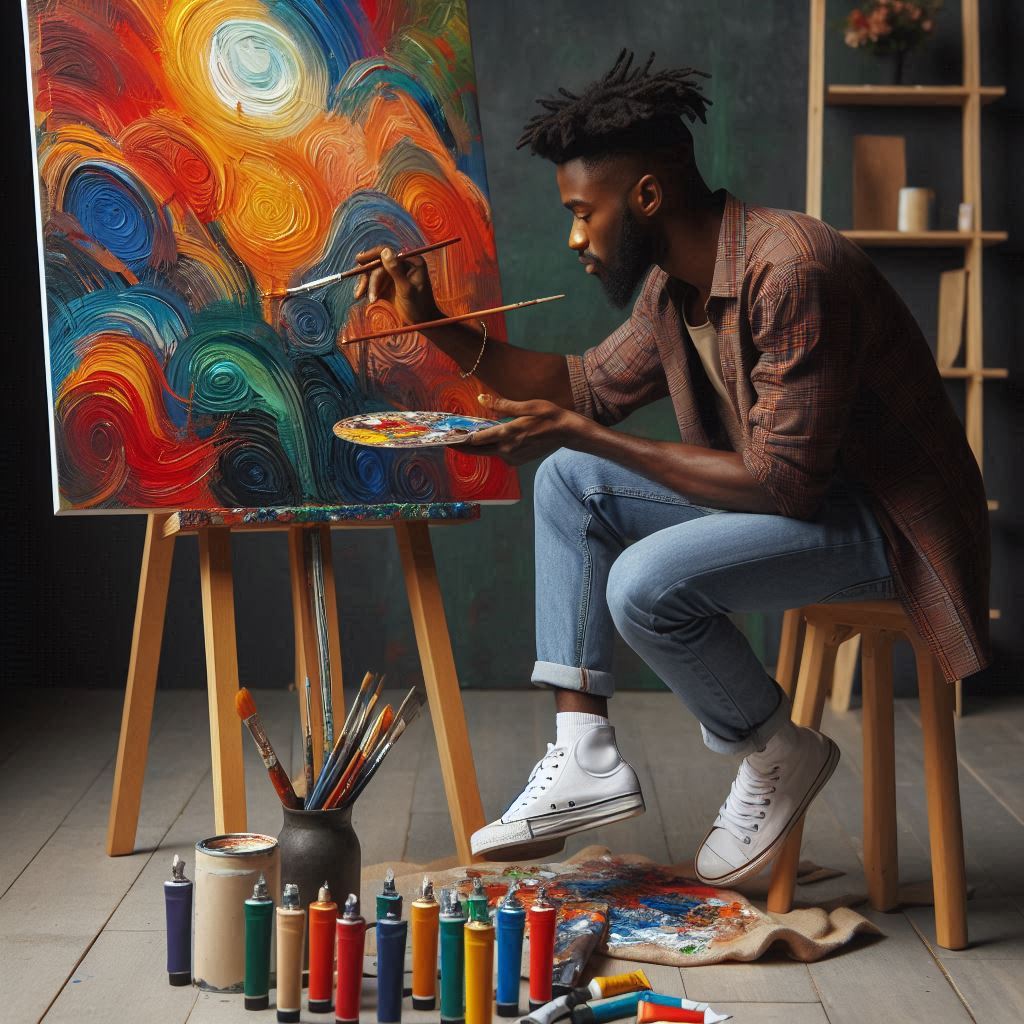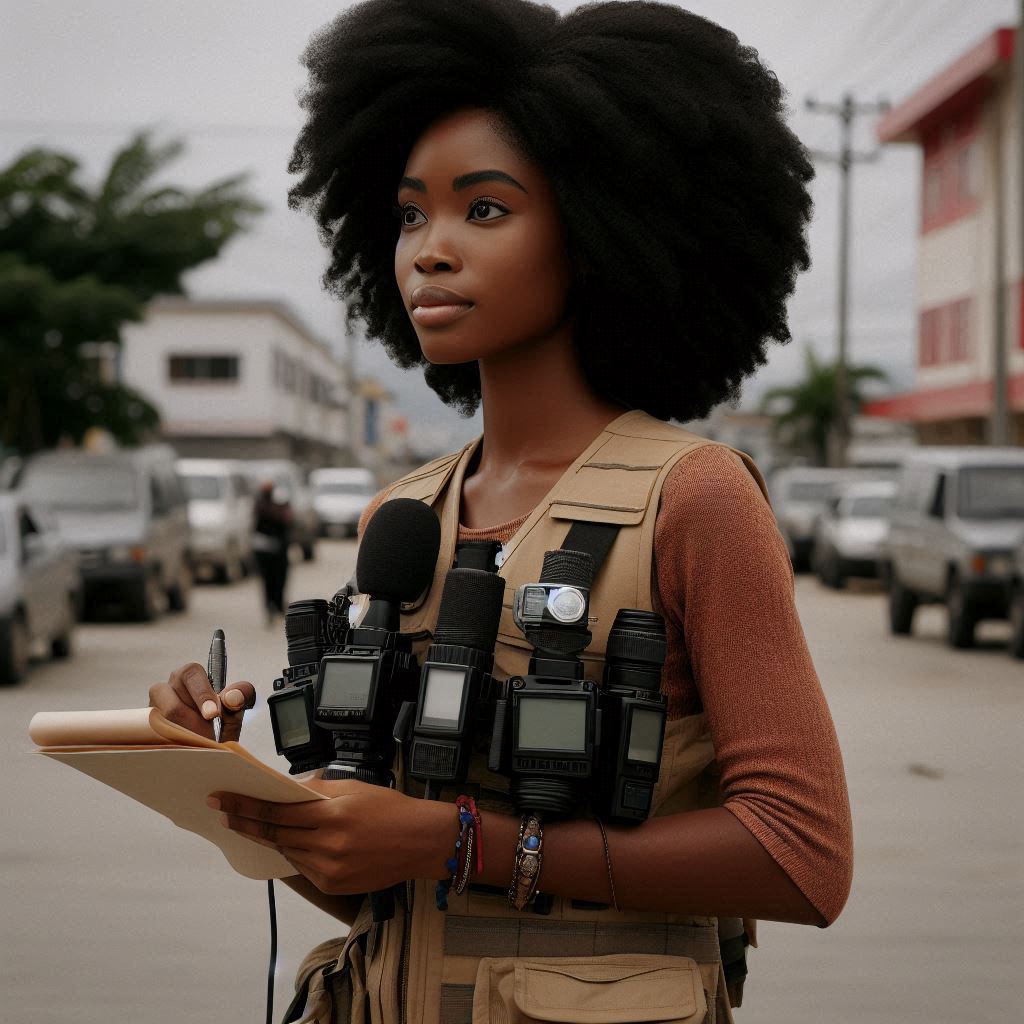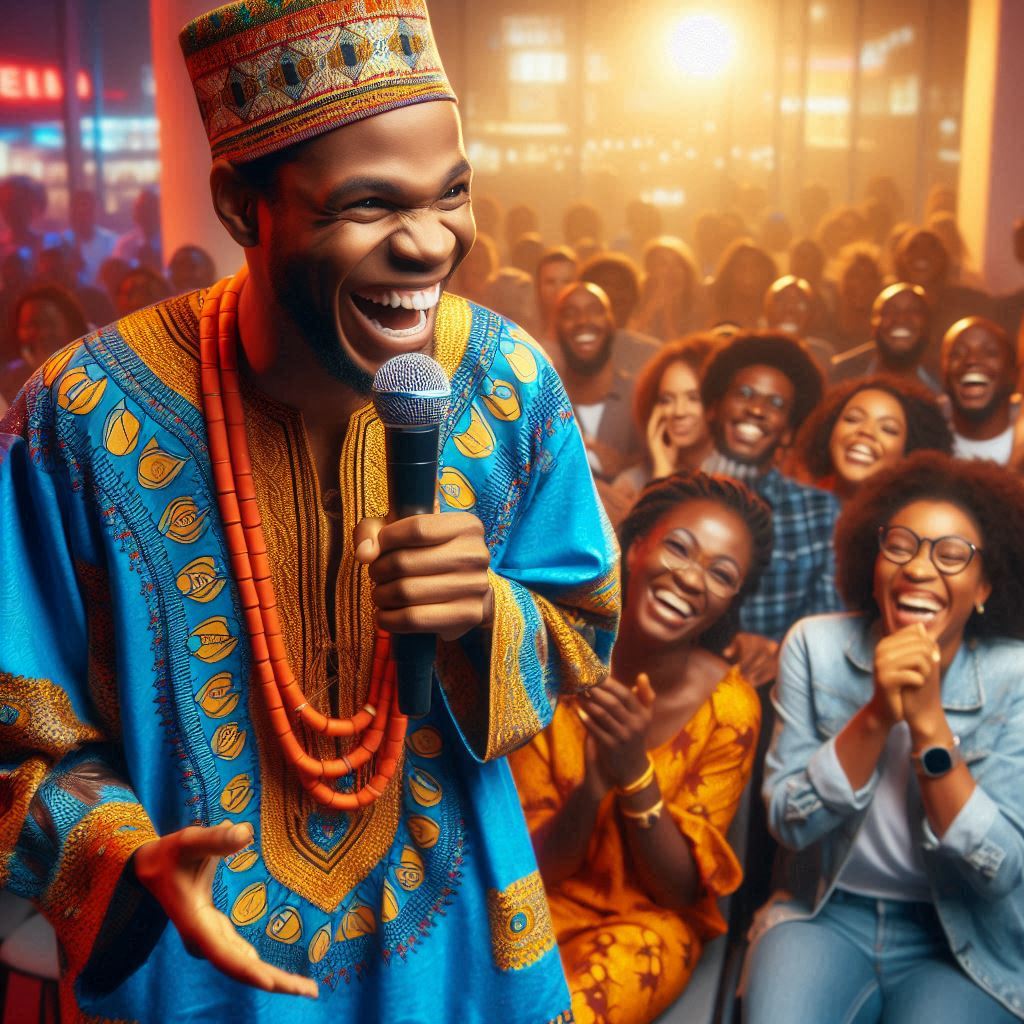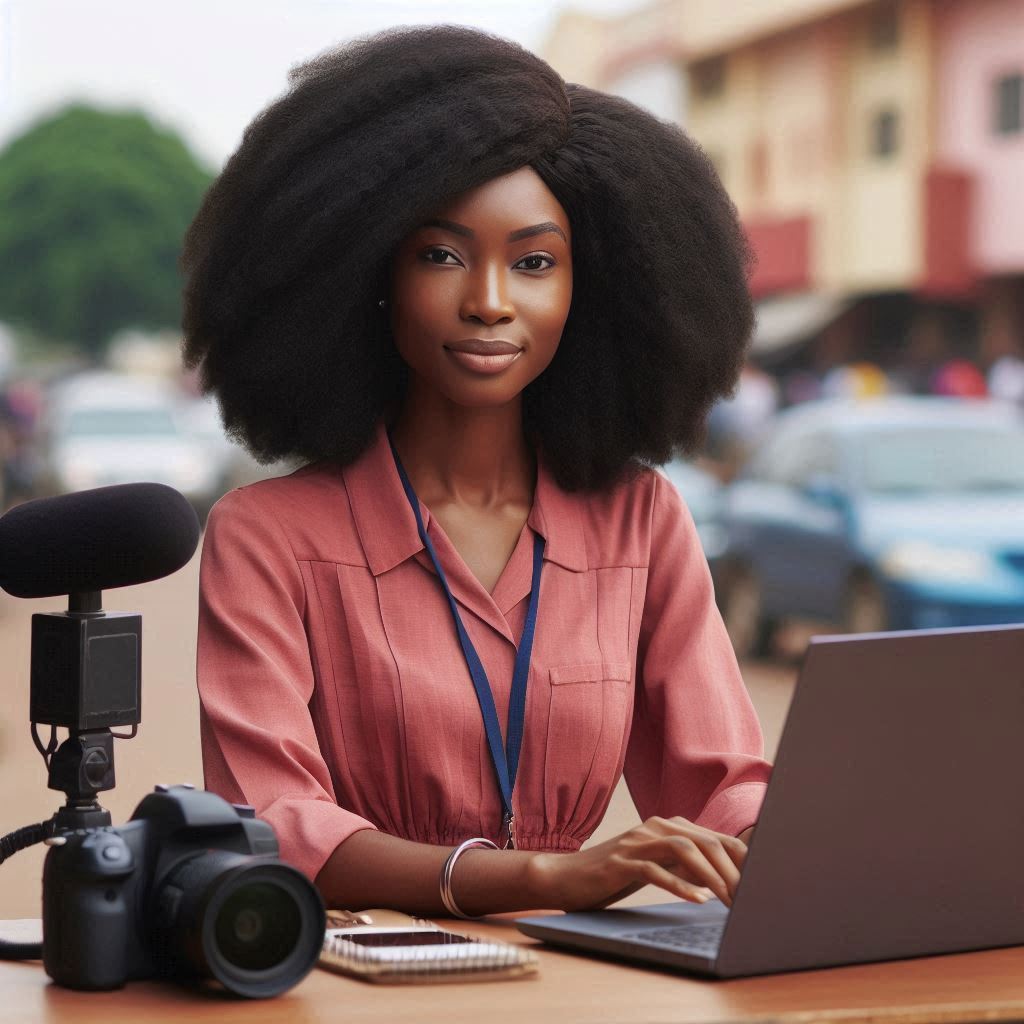Introduction
Nigerian arts encompass a rich tapestry of cultural expressions—visual arts, music, dance, literature—reflecting the country’s diverse heritage.
These creations serve as vessels of tradition, identity, and narrative, embodying centuries of history, beliefs, and values.
Similarly, Nigerian tourism showcases a breathtaking array of natural wonders, historical sites, and vibrant cultural experiences.
From the bustling markets of Lagos to the serene landscapes of Obudu, Nigeria offers a tapestry of destinations waiting to be explored.
Importance of Blending Arts and Tourism in Nigeria
The fusion of arts and tourism in Nigeria presents a symbiotic relationship that amplifies the allure of both sectors. Art acts as a magnetic force, drawing travelers to immerse themselves in the country’s cultural richness.
Conversely, tourism provides a platform for artists to showcase their talents to a global audience, fostering cultural exchange and economic opportunities.
This synergy not only promotes Nigeria’s cultural heritage but also fuels its economic growth.
Enhancing Cultural Preservation
By intertwining arts and tourism, Nigeria can safeguard its cultural heritage for future generations. Tourism initiatives serve as custodians, preserving and promoting traditional practices, rituals, and craftsmanship.
Through immersive experiences such as cultural festivals and artisan workshops, visitors gain insight into Nigeria’s rich heritage, fostering appreciation and respect for its cultural diversity.
Economic Empowerment
The fusion of arts and tourism serves as a catalyst for economic empowerment, particularly for local communities.
Artisans, performers, and cultural entrepreneurs play pivotal roles in the tourism ecosystem, driving economic growth and fostering sustainable development.
By leveraging tourism as a market for their products and services, artisans can expand their reach, create employment opportunities, and improve livelihoods within their communities.
Cultural Diplomacy
Nigeria’s vibrant arts scene serves as a potent tool for cultural diplomacy, fostering understanding and goodwill on the global stage.
Cultural exchanges, art exhibitions, and performances not only showcase Nigeria’s cultural richness but also promote dialogue and collaboration among nations.
Through arts-based tourism initiatives, Nigeria can strengthen its diplomatic ties, bridge cultural divides, and promote a positive image on the world stage.
Basically, the fusion of arts and tourism in Nigeria represents a dynamic synergy that enhances cultural preservation, drives economic empowerment, and fosters cultural diplomacy.
By embracing this perfect blend, Nigeria can unlock new opportunities for growth, prosperity, and global engagement.
Overview of Nigerian Arts
Nigeria, a country rich in cultural diversity, boasts a vibrant tapestry of traditional and contemporary arts.
Traditional Arts: A Legacy Preserved
Pottery, weaving, and sculpture embody centuries-old traditions, passed down through generations with meticulous craftsmanship.
These art forms reflect the cultural heritage of various Nigerian tribes, each with its distinct style and symbolism.
In pottery, intricate patterns and motifs tell stories of ancestry, spirituality, and daily life, while weaving techniques produce stunning textiles.
Sculpture, often depicting deities, heroes, or everyday scenes, serves as a visual language communicating values and beliefs.
Contemporary Expressions: Evolving Narratives
Nigeria’s contemporary art scene pulsates with creativity, embracing diverse mediums like painting, photography, and performance art.
Painters capture the complexities of modern Nigerian life, blending traditional motifs with contemporary themes and styles.
Photographers freeze moments in time, offering glimpses into Nigeria’s urban landscapes, cultural rituals, and societal nuances.
Performance artists challenge conventions, using their bodies as canvases to explore identity, politics, and social issues.
Significance in Cultural Heritage Preservation
Nigerian arts play a pivotal role in preserving the nation’s rich cultural heritage, safeguarding traditions from the erosion of time.
They serve as repositories of ancestral knowledge, transmitting stories, rituals, and values across generations.
By engaging with traditional arts, Nigerians maintain connections to their roots, fostering a sense of belonging and continuity.
Contemporary artists, while pushing boundaries, also contribute to cultural preservation by reinterpreting tradition for modern audiences.
Through exhibitions, festivals, and digital platforms, Nigerian arts reach global audiences, fostering cross-cultural understanding and appreciation.
In review, Nigerian arts, spanning traditional and contemporary forms, stand as pillars of cultural identity and heritage. They reflect the past, interpret the present, and inspire the future, ensuring that Nigeria’s cultural legacy endures for generations to come.
Read: The Future of Psychology Education in Nigeria
The Impact of Tourism on Nigerian Arts
Tourism illuminates Nigerian arts, broadcasting their richness worldwide, drawing admiration and appreciation from diverse cultures.
Global Showcase of Nigerian Arts
Tourism serves as a vibrant platform, spotlighting Nigerian arts on a global stage, captivating audiences with their uniqueness.
Visitors immerse themselves in the intricate designs of traditional Nigerian sculptures, marveling at the skill and craftsmanship.
Art festivals and cultural events attract tourists from far and wide, fostering cross-cultural exchanges and appreciation for Nigerian arts.
Through tourism, Nigerian artists gain international recognition, paving the way for collaborations and cultural exchanges across borders.
Preservation and Revitalization of Traditional Art Forms
Tourism acts as a catalyst for the preservation and revitalization of traditional Nigerian art forms, safeguarding them for future generations.
Artisans in remote villages find new markets and opportunities through tourism, sustaining age-old traditions and techniques.
Tourist demand for authentic Nigerian art motivates communities to safeguard their cultural heritage, ensuring its continuity and relevance.
By integrating traditional art into tourist experiences, Nigeria celebrates its cultural diversity, enriching the tourism landscape.
Collaboration Between Artists and Tourism Organizations
Tourism organizations partner with local artists to curate immersive experiences, offering visitors insights into Nigerian artistic traditions.
Art workshops and demonstrations allow tourists to engage with Nigerian artists, fostering mutual appreciation and cultural understanding.
Collaborative projects between artists and tourism organizations create economic opportunities, empowering communities and promoting sustainable development.
Through joint promotional efforts, Nigerian artists gain exposure to wider audiences, enhancing the global recognition of Nigerian arts.
Transform Your Career with Expert Guidance
Get personalized mentorship consulting that’s tailored to your unique path. Our expert advice is actionable and exclusive.
Get StartedIn a nutshell, tourism serves as a dynamic force, amplifying the impact of Nigerian arts on the global stage.
By promoting cultural exchange and collaboration, tourism contributes to the preservation and revitalization of traditional art forms.
Through strategic partnerships between artists and tourism organizations, Nigeria showcases its artistic heritage to the world, enriching cultural experiences and fostering global appreciation for Nigerian arts.
Read: Psychology and Counseling Services in Nigerian Schools
Popular Tourist Destinations in Nigeria
Nigeria, a country bursting with diverse landscapes and rich cultural heritage, boasts several captivating tourist destinations.
From the lush savannahs of the north to the pristine beaches of the south, Nigeria offers a wide array of attractions that cater to every traveler’s taste.
Yankari National Park
Nestled in the heart of Bauchi State, Yankari National Park is a paradise for nature enthusiasts. Spanning over 2,000 square kilometers, this wildlife sanctuary is home to a myriad of exotic species, including elephants, lions, and hippos.
Visitors can embark on guided safaris, explore ancient caves, and unwind in the natural warm springs scattered across the park.
Olumo Rock
Rising majestically above the historic city of Abeokuta, Olumo Rock stands as a symbol of resilience and cultural significance.
Ascending the rocky terrain via a series of stairs, tourists are treated to panoramic views of the surrounding landscape. Rich in folklore and heritage, Olumo Rock offers visitors a glimpse into Nigeria’s storied past.
Lekki Conservation Centre
Located in the bustling city of Lagos, Lekki Conservation Centre is a haven for eco-tourism enthusiasts. Spanning over 78 hectares of lush mangrove forests and wetlands, this conservation center is home to diverse flora and fauna.
Visitors can stroll along elevated walkways, observe resident monkeys and crocodiles, and partake in birdwatching excursions.
Role of Artwork and Cultural Exhibitions
In addition to natural wonders, Nigeria’s vibrant arts scene plays a pivotal role in attracting tourists from around the globe.
The country’s rich tapestry of traditional crafts, music, and dance serves as a magnet for cultural enthusiasts seeking authentic experiences.
Art galleries and cultural exhibitions showcase Nigeria’s diverse artistic heritage, from intricate wood carvings to vibrant textiles.
Local artisans offer immersive workshops where visitors can learn traditional techniques such as beadwork and pottery, fostering cross-cultural exchange and appreciation.
The Potential of Arts and Tourism to Boost the Nigerian Economy
The synergy between arts and tourism presents a unique opportunity to stimulate economic growth and foster sustainable development in Nigeria.
By investing in infrastructure, promoting cultural festivals, and supporting local artisans, the government can harness the full potential of this burgeoning industry.
Tourism revenue generated from ticket sales, accommodations, and souvenir purchases injects vital capital into local economies, creating jobs and stimulating small businesses.
Furthermore, showcasing Nigeria’s rich cultural heritage on the global stage enhances the country’s international reputation and fosters diplomatic relations.
In essence, Nigeria’s arts and tourism sectors are intrinsically linked, forming a dynamic partnership that showcases the country’s natural beauty and cultural vibrancy.
By harnessing the power of these industries, Nigeria can unlock new avenues for economic prosperity and position itself as a premier destination for travelers seeking authentic experiences.
Read: How Nigerian Schools Address Student Psychology

Challenges and Solutions
Challenges Faced by Artists and Tourism Operators in Promoting Nigerian Arts
- Lack of Infrastructure: Artists and tourism operators often struggle due to inadequate infrastructure in Nigeria.The lack of proper galleries, exhibition spaces, and art studios hinders the promotion of Nigerian arts on a global scale.
- Funding Constraints: Financial constraints pose a significant challenge for artists and tourism operators.Limited access to funding for art projects, exhibitions, and cultural events restricts the growth and outreach of Nigerian arts.
- Marketing Difficulties: Effective marketing is essential for promoting Nigerian arts and tourism.However, many artists and operators face challenges in reaching their target audience and establishing a strong online presence to attract tourists and art enthusiasts.
Solutions to Overcome Barriers Such as Lack of Infrastructure, Funding, and Marketing
- Government Support: The government plays a crucial role in supporting the arts and tourism industry in Nigeria. By investing in infrastructure development, providing grants and subsidies, and implementing policies to promote cultural exchange, the government can help artists and tourism operators overcome challenges and thrive in their respective fields.
- Private Sector Investment: Private sector investment is vital for the growth of Nigerian arts and tourism. Collaboration with corporate sponsors, art galleries, and cultural institutions can provide artists and operators with financial support, marketing opportunities, and access to a wider audience, thus boosting the visibility and sustainability of Nigerian arts.
- Capacity Building Programs: Capacity building programs aimed at enhancing the skills and knowledge of artists and tourism operators can help them overcome challenges in promoting Nigerian arts. Workshops, training sessions, and mentorship opportunities can equip individuals with the tools needed to effectively showcase their work and attract tourists to cultural events and destinations.
Importance of Government Support and Private Sector Investment in the Arts and Tourism Industry
The arts and tourism industry in Nigeria benefit greatly from government support and private sector investment.
These two entities play a vital role in enhancing the visibility, sustainability, and economic growth of the sector, ultimately contributing to the overall development of the country’s cultural heritage and tourism potential.
Government support provides artists and tourism operators with the necessary resources and infrastructure to promote Nigerian arts on a global platform.
By allocating funds for cultural initiatives, establishing art institutions, and implementing policies that foster creativity and innovation, the government creates an enabling environment for artists to thrive and for tourists to experience the rich cultural heritage of Nigeria.
On the other hand, private sector investment injects capital into the arts and tourism industry, stimulating growth, innovation, and collaboration among artists, tourism operators, and other stakeholders.
Corporate sponsorship, partnerships with cultural institutions, and marketing initiatives led by private companies help to expand the reach of Nigerian arts,
attract tourists to cultural events and destinations, and generate economic opportunities for artists and local communities.
Overall, the synergy between government support and private sector investment is essential for the development of the arts and tourism industry in Nigeria.
By working together to overcome challenges, promote cultural exchange, and create sustainable opportunities for artists and tourism operators,
these entities can leverage the unique blend of Nigerian arts and tourism to showcase the nation’s creative talents, cultural diversity, and natural beauty to the world.
Read: Understanding Mental Health Laws in Nigeria
Cultural Exchange and Representation
Cultural exchange and representation are essential components in the global promotion of Nigerian arts and tourism.
Nigerian arts play a crucial role in fostering cultural diplomacy and showcasing the richness and diversity of Nigerian culture to audiences worldwide.
One significant aspect of the Nigerian arts scene is its ability to serve as a bridge between different cultures,
fostering understanding, respect, and appreciation for Nigeria’s cultural heritage.
Through various art forms such as music, dance, visual arts, and literature,
Nigerian artists communicate their traditions, beliefs, and values to a global audience.
Promoting Cultural Exchange and Diplomacy
Nigerian arts serve as powerful tools for promoting cultural exchange and diplomacy on the international stage.
Through art exhibitions, performances, and collaborations with foreign artists,
Nigerian creatives have the opportunity to engage with diverse audiences and showcase the depth and beauty of Nigerian culture.
By participating in international art festivals, cultural exchange programs, and artistic residencies,
Nigerian artists can build relationships with their counterparts from other countries,
fostering mutual understanding and appreciation for each other’s cultural heritage.
These exchanges help break down cultural barriers, promote dialogue, and create opportunities for collaboration and partnership.
Representation on the International Stage
Representation of Nigerian arts and culture on the international stage is essential for promoting Nigeria’s cultural heritage and identity.
Nigerian artists have gained recognition and acclaim on the global scene,
with their works exhibited in renowned galleries, museums, and cultural institutions around the world.
Through collaborations with international curators, art collectors, and institutions,
Nigerian artists have the opportunity to showcase their talent and creativity to a global audience.
These partnerships bring Nigerian arts to new markets,
expanding the reach and impact of Nigerian cultural production on the international stage.
Opportunities for Collaboration
Collaboration with foreign artists and institutions provides Nigerian creatives with opportunities to explore new artistic horizons,
exchange ideas, and showcase their talent on a global platform.
By partnering with international artists, Nigerian creatives can learn new techniques,
experiment with different styles, and create innovative works that push the boundaries of traditional art forms.
Collaborative projects between Nigerian and foreign artists also create opportunities for cultural exchange, dialogue, and mutual enrichment.
Through joint exhibitions, performances, and artistic collaborations, Nigerian artists can share their perspectives,
insights, and experiences with international audiences, fostering cross-cultural understanding and appreciation.
In fact, cultural exchange and representation play a vital role in promoting Nigerian arts and tourism on the international stage.
Through collaborations with foreign artists and institutions,
Nigerian creatives can showcase their talent, build relationships, and promote Nigeria’s rich cultural heritage to a global audience.
By embracing cultural exchange and collaboration,
Nigerian artists can contribute to the global dialogue, foster mutual understanding, and promote cultural diplomacy through their creative expressions.
Conclusion
In concluding, blending Nigerian arts and tourism holds immense significance. It intertwines cultural heritage with economic prosperity.
Recap of Significance
Nigerian arts represent rich cultural diversity, showcasing traditions, history, and creativity. Tourism amplifies this narrative, attracting global attention.
The fusion of arts and tourism enhances cultural exchange, fostering understanding and appreciation. It preserves heritage while stimulating economic growth.
Through immersive experiences, tourists engage with Nigerian arts, contributing to local economies. This sustains livelihoods and empowers communities.
Call to Action
To fully realize this potential, collective action is imperative. Individuals, organizations, and the government must unite.
Individuals can support by patronizing local artists, attending cultural events, and sharing experiences.
Organizations should invest in cultural initiatives, sponsor festivals, and collaborate with artists.
The government plays a pivotal role in policy formulation, infrastructural development, and promotion.
Thriving Potential
Nigerian arts and tourism possess boundless potential. With strategic investments and concerted efforts, they can flourish.
The synergy between arts and tourism fuels creativity, innovation, and entrepreneurship. It births new opportunities and industries.
As Nigeria’s cultural ambassadors, artists and tourism stakeholders elevate the nation’s profile on the global stage.
This not only enhances cultural diplomacy but also attracts foreign investment and fosters international partnerships.
In essence, Nigerian arts and tourism are catalysts for cultural and economic development. They redefine Nigeria’s narrative, bridging the past with the future.
By embracing and nurturing this blend, Nigeria can chart a course towards sustainable growth and prosperity.
In closing, the fusion of Nigerian arts and tourism is more than a mere collaboration. It is a celebration of heritage, a driver of progress, and a beacon of hope.
As we embark on this journey, let us remember the power of unity, the strength of diversity, and the beauty of our collective identity. Together, let us champion Nigerian arts and tourism and build a brighter future for generations to come.




